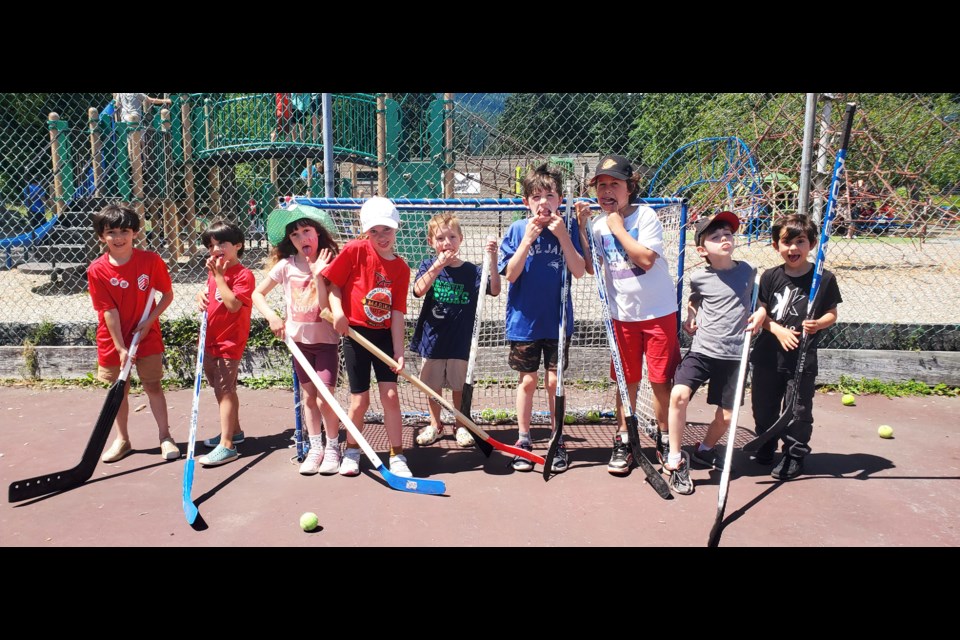For more than two decades, the Bowen Island Literacy Task Group (BILTG) has been dedicated to promoting literacy and fostering education on Bowen Island.
The BILTG is comprised of representatives from key community groups, including the Bowen Island Public Library, Bowen Children’s Centre, Bowen Island Community School, Bowen Island Community Recreation, Bowen Island Community Health Centre, The Hearth, Arts on Bowen, and Bowen Island Museum and Archives. This broad coalition ensures that a wide range of programs are offered, each designed to address the diverse needs of our community.
“The BILTG recognizes that literacy is the foundation for enriching lives, creating opportunities, and building a more inclusive and vibrant community,” says Ann Silberman, Executive Director of the BCC, who acts as steward of the literacy group.
“Through collaboration with various local organizations, the BILTG offers programs and events that engage community members of all ages, recognizing that literacy supports everyone from babies to elders, individuals and families, and opens doors to career opportunities and stable employment,” says Silberman.
Funded by Decoda Literacy Solutions, an organization established by the provincial government, the BILTG is proud to have supported numerous initiatives in the past year. These include the first-ever public Pride Celebration on Bowen Island, Canada Day Reimagined on Canada Day, and Mother Goose, a social-emotional program aimed at supporting parenting literacy skills.
Members of the BILTG have helped organize fitness classes for seniors, Babytime at the Library, and a Craft and Culture series at the Bowen Island Museum & Archives.
In British Columbia September has been designated as Literacy Month, with this year’s theme, “Literacy: The Ripple Effect.”
“Improving literacy skills has a powerful ripple effect that positively impacts nearly every aspect of life at home, at work and in the community,” says Sandra Lee, Decoda’s executive director.
“When people have better literacy skills, the entire economy benefits. For example, a one per cent increase in literacy scores in Canada can boost labour productivity and raise income per capita by three per cent. This means that even small improvements in literacy can lead to significant economic gains,” says Lee.
Raise-a-Reader, a fundraising and awareness campaign, ran at the end of September. The BILTG encourages all community members to join in supporting local literacy efforts by making a donation at https://www.canadahelps.org/en/dn/42475
For more information, please contact Jacqueline Massey, Literacy Outreach Coordinator, at [email protected]
Literacy Fact Sheet, provided by Decoda Literacy Solutions
The Ripple Effect of Literacy on:
The Economy: A 1% increase in Canadian literacy scores can lead to a 3% increase in labour productivity and income per capita.
Employment: Strong literacy skills are linked to better job opportunities and higher earnings.
Health: Literacy skills help us find, understand and use health information effectively.
Safety: Strong literacy skills contribute to safer working environments by helping employees understand safety protocols and procedures.
Children: Having books and reading aloud at home fosters children’s literacy skills, setting a foundation for lifelong learning.
Technology: Digital literacy enables people to fully participate in society, bridging the digital divide.
Crime: Educational programs for inmates can reduce recidivism by up to 30%.
B.C. Literacy Facts
More than 700,000 people in BC struggle with literacy challenges.
45% of British Columbians aged 16 to 65 may have difficulty understanding newspapers, following instruction manuals, reading health information and other daily living tasks.
52% of British Columbians aged 16 to 65 may have difficulty calculating interest on a car loan, using information on a graph, calculating medicine dosage and other daily living tasks.
10.5% or 4,302 kindergarten children in all School Districts in BC were vulnerable on the Language & Cognitive Development scale of the Early Development Instrument in 2019-2022, and an additional 11% are at risk.



